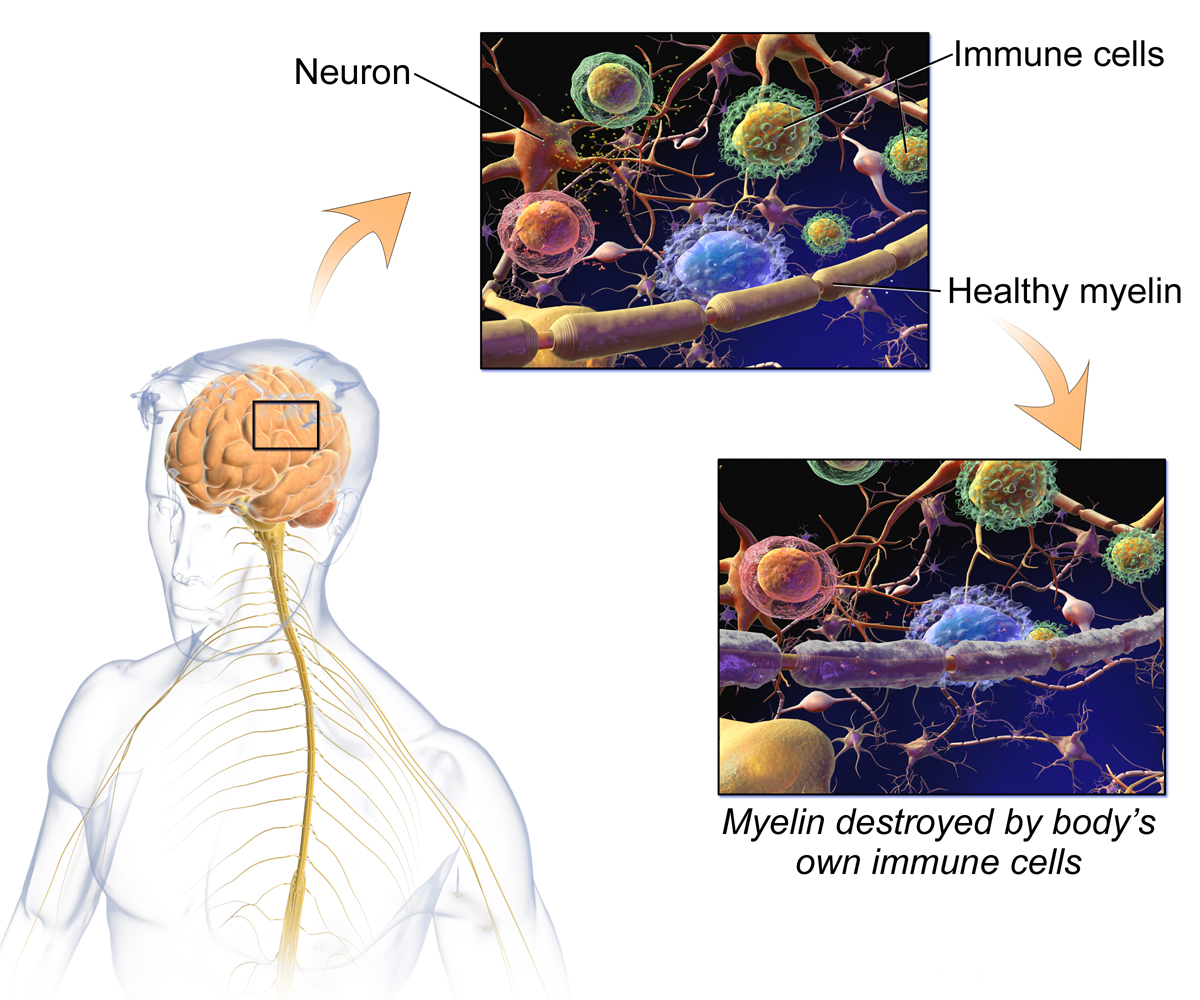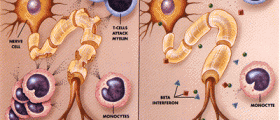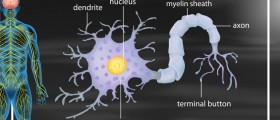
About Multiple Sclerosis
Multiple sclerosis is an inflammatory disease and a quite debilitating medical condition in which the body attacks its nerves or, to be more precise, the fatty myelin sheath that covers the nerves. By damaging myelin, transmission between nerves is inappropriate which is the cause of all symptoms and signs of the disease.
There is a variety of clinical characteristics of multiple sclerosis and they generally depend on the level of damage as well as the particular nerves that have been damaged by the process of inflammation. For example a person suffering from multiple sclerosis may fell numbness or weakness in one or more limbs, partial or complete loss of vision, tremor, lack of coordination, fatigue etc. In severe cases patients may even lose the ability to walk or speak. Because symptoms and signs of multiple sclerosis in initial stages of the disease come and go it may be hard to set the diagnosis until they fully develop and linger for a longer period of time.
It is believed that multiple sclerosis develops as a consequence of the autoimmune process in which the body (the immune system) attacks myelin not recognizing it as a part of the body. Once the myelin is damaged the affected nerves lose their function and they cannot transmit signals any more. The condition occurs as a mixture of different factors and genetics is only one of them.
Therapy for Multiple Sclerosis
Multiple sclerosis is incurable. However, there are certain treatment modalities that can prevent progression of the disease and bring symptoms and sign of multiple sclerosis under control. Mild cases of multiple sclerosis are sometimes not treated.
It is essential to start the treatment during the initial attack and as soon as the definitive diagnosis is established. Corticosteroids are the most common medications prescribed to people suffering from multiple sclerosis. They are either administered orally or intravenously. Once the symptoms are brought under control corticosteroids are further taken in a pill form. Plasmapheresis is another treatment modality for multiple sclerosis and it is recommended to patients who do not respond to corticosteroids.
There are additional therapies to control and prevent further progression of the disease. They include beta interferon, glatiramer, fingolimoid, natalizumab and mitoxantrone.
Physical therapy is also an essential part of treatment for multiple sclerosis particularly in patients suffering from muscle weakening. Occupational therapy helps such patients in performing routine daily tasks.
Stem transplantation is currently under investigation and one day may become a successful treatment option that will potentially cure all the symptoms and signs of the disease.

















Your thoughts on this
Loading...